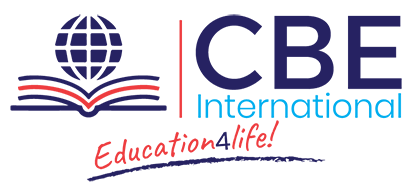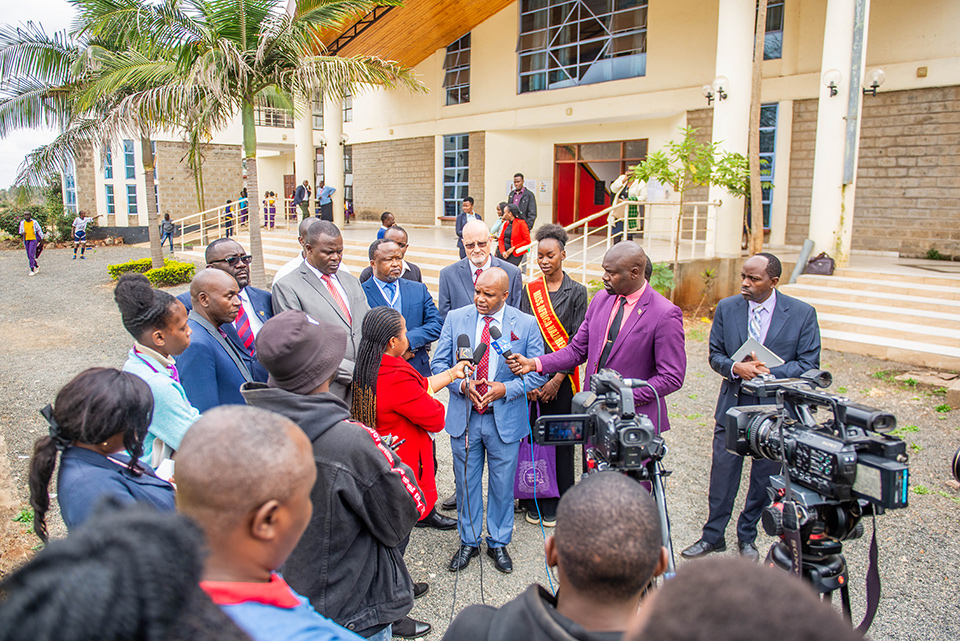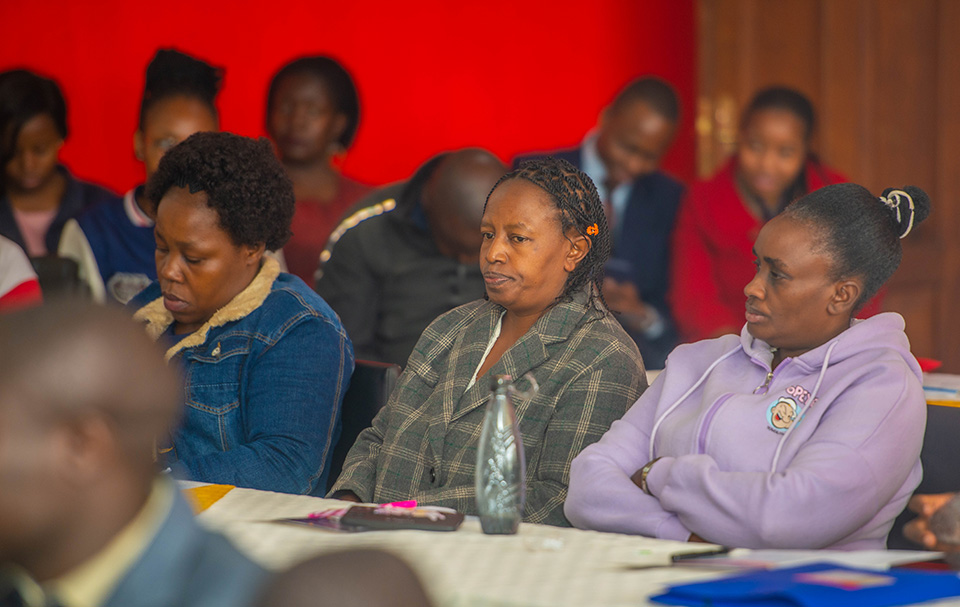
Jacaranda Close,
Off Ridgeways Road
Phone Number
0745624158, 0745623979

Off Ridgeways Road
0745624158, 0745623979
admin
August 22, 2023
(Solomon Munene National Vice Chairman for Kenya Private School Association (KPSA) the umbrella boardy for private schools in Kenya. KPSA’s mandate is to engage stakeholders and the government and people to build and organize capacity building for its members across the country)
I am delighted on behalf of KPSA to be part of this great official launch of CBE International and Africa Nazarene University partnership. I’m delighted to learn that Africa Nazarene’s University core values ; character, competence and community are close to the pillars of the new competency based curriculum which are character, creativity and community learning.
Kindly allow me to express my appreciation to the organizers of this great platform aimed at collaboration on training and dissemination of approved curriculum. At KPSA we are in support of all initiatives that are geared towards successful dissemination of the new curriculum all the way from the basic education to the higher education level.
This event is being held here at African Nazarene University which is one of the 36 private universities in Kenya. Personally, I am a product of a private university that is Daystar University, so talking about higher education, I am aware that universities and TVETs are now required and have begun to realign their training courses and programs to the competency based curriculum.

This means that all the sectors and stakeholders must come together for the successful unrolling of CBC all the way to the tertiary level. We are aware that in 2017, the government of Kenya launched a new competency-based curriculum (CBC) to replace the previous 32 year old program and system. The move was welcome due to long standing concerns over the former program’s preoccupation with examinations, heavy work loads and a teacher centered instructive approach.
CBC is designed to be learner centered and based on the premise that children learn best when they construct their own knowledge and skills through being exposed to different challenging scenarios and helped to find real life solutions. The move by the government of Kenya to change the curriculum from the knowledge based curriculum to the competence based curriculum is laudable since any worthwhile curriculum needs to respond to the emerging issues as they arise for example HIV and AIDS prevention, peace education, sustainable development, joblessness, ICT devolution etc.
Further, there was a need to prepare learners who will adapt to a dynamic job market that is demanding transferable skills and soft skills. Kenya Institute of Curriculum Development (KICD), mandated to develop quality curriculum support materials responsive to the needs that society played a critical role in the implementation of the new curriculum. To actualize the curriculum reforms, KICD developed the Basic Education Curriculum Framework.
Its purpose is to provide a comprehensive basic education framework. The Special Needs Education(SNE) curriculum model has been reformed to accommodate all the children in our curriculum and it is now stage based which according to me is one of the most progressive and innovative curriculum reforms because it allows learners with special needs to learn their capabilities and engage their independence and social participation.
At the moment, we are focused on the report that has been released recently by the Presidential Working Party on Education Reforms. The presidential working party on education reforms which was appointed on 29th September 2022 released their report and KPSA wishes to thank the president of the republic of Kenya for the noble initiative of involving Kenyans and stakeholders in education during the education reform process in line with the demands of the constitution which demands that there must be public participation in formulation of public policies.

KPSA also wishes to appreciate the working party on education reforms led by Professor Raphael M Munavu for relentless efforts to ensure that the aspiration of Kenyans are captured in the education reform process and for the timely release of a comprehensive report covering the entire spectrum of our education training and research.
The presidential working party on education reforms released its interim report on 1st December 2022 and 29th March 2023 respectively which was aimed at addressing the most urgent issues in the education sector including the question of domiciling of the junior secondary school.
The comprehensive report of the presidential working party on education reforms was submitted this month to the President of the Republic of Kenya. The report seeks to help our beloved country realize the much-needed community transformation. The implementation of the report is believed to place Kenya in the right trajectory in the country’s human and economic growth. With the official release of the education reforms report, the focus now goes to the implementation.
The ministry of education (MOE) has been tasked with the responsibility of implementing the report. For effective and efficient implementation of the new curriculum education in Kenya, we must be sincere and honest with ourselves. We must honestly take stock of what we have, establish where we are, and chart a realistic work plan for the progressive implementation of the curriculum.

The teaching methodology under CBC is a radical departure from the 8-4-4 teaching methodology which is teacher centered and most of our teachers have learnt through the 8-4-4 structure of education and trained in it. It will therefore take a sustained capacity building process of our teachers and a new way of training our teachers a the teacher’s colleges and universities must continuously be reviewed to ensure that our teachers are retooled in the most effective way.
The MOE and the Teacher’s Service Commission (TSC) need to liaise and collaborate with other institutions to ensure that retooling of teachers is done continuously and in a relevant and sustained manner. We must also focus in continuous improvement of our infrastructure and acquire relevant teaching materials. The government must deliberately increase budgetary allocation for increased hiring of teachers, infrastructure and learning materials.
Teachers must also be willing to be innovative and improvise as much as possible, use local materials, and involve learners in sourcing out learning materials because this enhances creativity, innovation, and problem solving skills among learners and since a lot of funding is required for effective implementation of the new curriculum, we as the private sector are willing to partner with the government and other stakeholders to successfully implement the new curriculum.
This brings me to the recommendation made by the Professor Ojiambo report of 2012 that recommended among others, a collaboration between the government and the private sectors in matters education. Public private partnership (PPPs) in education is a mutual collaboration between the government and the private sector that could help reduce public spending, increase access, equality and equity in the provision of education in Kenya. In this case, the private sector is instrumental in supplementing the government effort in providing services in the education sector.
PPPs have been adopted widely internationally over the last two decades to enable government obtain greater value of the investment in education. Sessional Paper Number 1 of 2019 recommended the establishment of a revolving fund for lending to education entrepreneurs at a marginal interest rate. This reduced the public financing on education and consequently increased access, equity and equality of education in both public schools and private schools.
From the foregoing therefore, I wish to make some specific recommendations that in my opinion if considered will help us to realize successful and sustained implementation of the new curriculum whose aim is to place Kenya on the right trajectory to address the 21st Century and beyond.
An expert training & research organization for practical parenting and effective guardianship of Junior Secondary school students, will be running day long clinics for JSS Prents and Guardians.